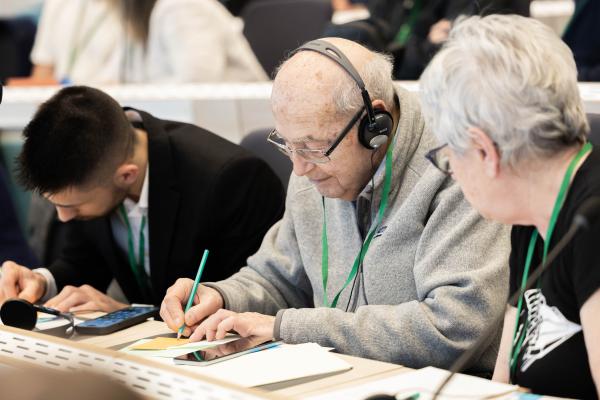
The ALMA project directly targeted disadvantaged NEET youth from Seville, Cordoba, and Granada, aiming to foster their social inclusion through transnational mobility and training experiences in Germany. Participants were selected specifically from poorest neighborhoods, many facing systemic barriers to education and work. Aimed to support the social and professional inclusion of disadvantaged youth through transnational mobility experiences. Over the course of its implementation (October 2023–April 2025), it targeted 30 young people from deprived neighborhoods in Andalusia, with 27 completing the program. The project facilitated internships in Germany, combining work experience with cultural exchange. Among the participants:
95% achieved successful reintegration post-mobility: 7 gained employment, 7 secured internships with contracts, 6 resumed formal education, 5 began enrolling in training, and only 1 remained inactive.
Notable improvements were recorded in language acquisition (+0.850), intercultural teamwork (+0.476), and self-confidence (+0.292), showcasing the project’s tangible developmental impact. Family perception improved markedly, enhancing support structures for the youth. The initiative fostered personal growth, professional readiness, and emotional maturity. It empowered participants to navigate new cultural and work environments, boosting their employability and confidence. Emotional and psychological gains were evident, but challenges included language barriers, brief program duration, and initial mismatch in expectations versus internship realities. The ALMA experience proved highly beneficial, underlining the need for: enhanced pre-departure orientation (e.g., detailed internship info and language preparation); psychological and emotional support during mobility; longer mobility durations for deeper impact.
The project aligns with EU priorities by addressing youth unemployment and social exclusion. It facilitated mobility, intercultural exchange, and skills development, reinforcing social cohesion and the EU’s inclusive growth agenda. ALMA Andalucía demonstrated a scalable model for transnational inclusion that can be replicated across Europe, contributing to broader EU strategies under the European Social Fund Plus (ESF+). Overall, the project exemplifies how localized interventions can yield measurable, Europe-wide benefits in youth development and social integration.
95% achieved successful reintegration post-mobility: 7 gained employment, 7 secured internships with contracts, 6 resumed formal education, 5 began enrolling in training, and only 1 remained inactive.
Notable improvements were recorded in language acquisition (+0.850), intercultural teamwork (+0.476), and self-confidence (+0.292), showcasing the project’s tangible developmental impact. Family perception improved markedly, enhancing support structures for the youth. The initiative fostered personal growth, professional readiness, and emotional maturity. It empowered participants to navigate new cultural and work environments, boosting their employability and confidence. Emotional and psychological gains were evident, but challenges included language barriers, brief program duration, and initial mismatch in expectations versus internship realities. The ALMA experience proved highly beneficial, underlining the need for: enhanced pre-departure orientation (e.g., detailed internship info and language preparation); psychological and emotional support during mobility; longer mobility durations for deeper impact.
The project aligns with EU priorities by addressing youth unemployment and social exclusion. It facilitated mobility, intercultural exchange, and skills development, reinforcing social cohesion and the EU’s inclusive growth agenda. ALMA Andalucía demonstrated a scalable model for transnational inclusion that can be replicated across Europe, contributing to broader EU strategies under the European Social Fund Plus (ESF+). Overall, the project exemplifies how localized interventions can yield measurable, Europe-wide benefits in youth development and social integration.
Case study details
- Lead organisation
- Countries
- GermanySpain
- Themes
- Tackling long term unemploymentActive inclusion and employabilityIntegration of marginalised communities
- Target groups
- Long-term or repeatedly unemployed personsNEETs (Not in Education, Employment, or Training)Individuals experiencing poverty or social exclusion
- Level of action
- International
- Source of funding
- Public - EUPrivate
- Project start
- 2023
- Internet and social
- EU fund
- ESF/ESF+



